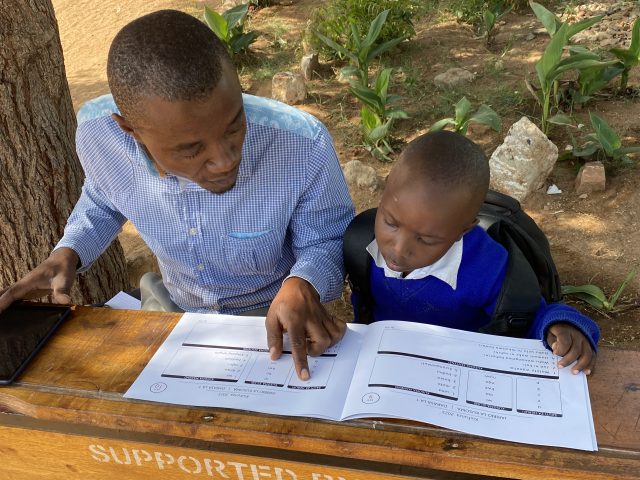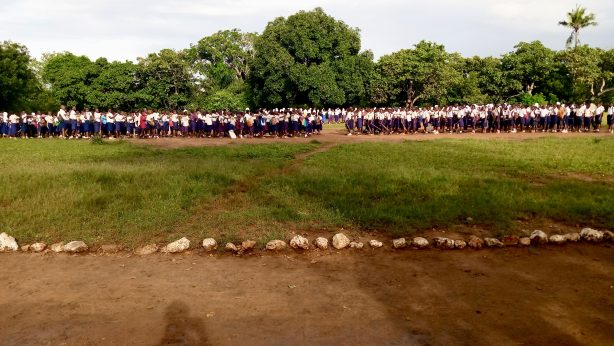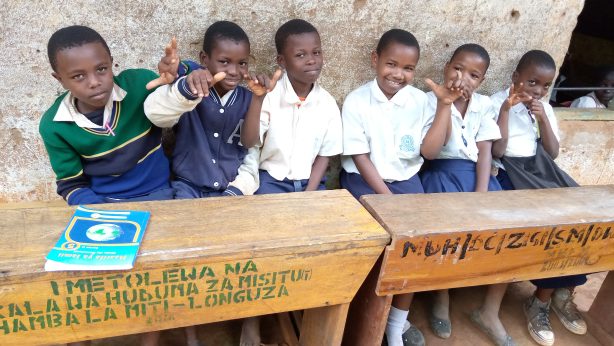Twaweza teacher incentive program helps over 77,000 pupils to improve basic reading and math
This week teachers in 265 primary schools in 11 regions of Tanzania will receive a total of TZS 401 million in their bank accounts as a performance bonus, based on the reading and numeracy skills of their early-grade students at the end of the 2023 school year.
Some 1044 subject teachers will be paid TZS 334.4 million in total. On average, subject teachers receive TZS 320,000 (± 128 USD), which is 3.4 percent of the average teacher’s annual salary. The amount received by each teacher is based on the number of students in their class who master foundational reading and numeracy skills – including reading stories, addition, and subtraction – as required by the national curriculum.
A total of 273 head teachers receive almost TZS 67 million in total. Head teachers receive 20 percent of what the subject teachers in their school are paid, as a bonus for their supporting role in the performance of the students.

The performance bonus is paid through a program called KiuFunza – Kiu ya Kujifunza – a collaboration between Twaweza East-Africa and the Government of Tanzania, that is supported by the Hempel Foundation (Denmark). KiuFunza aims to improve foundational reading and numeracy for young students in grades 1, 2 and 3. The vision of the program is to get all children in Tanzania to read and calculate by the age of 10.
The 265 schools currently in the program were selected from the poorest performing districts in Tanzania, according to Standard Four National Assessment data.
The pass rates in the KiuFunza schools have already started to improve. In November 2023, before the first payments were made, students in KiuFunza schools performed better in both reading and numeracy, compared to a randomly selected control group of primary schools that started at the same level.
The learning impact in 2023 is defined as the higher pass rate at the KiuFunza schools compared to the control group or non-KiuFunza schools across all three grades. For reading Kiswahili the pass rates at the end of 2023 are 44 percent in the control group and 49 percent in KiuFunza schools. Therefore, the impact is +5 percentage points for reading. For numeracy the pass rates are 45 percent in the control group and 52 percent in KiuFunza schools. The impact is thus +7 percentage points in 2023.
In the previous phase of this program, the same incentive model was used but in a smaller set of 100 schools. The 2023 impacts are similar to those found in 2019, the first year of KiuFunza 3 – but now at almost three times as many schools.
Aidan Eyakuze, Executive Director of Twaweza, said “Learning is key to our national development: all our children should be able to read and calculate by age 10. Of course, we need good schools, good teaching and books but people often forget that we also need motivated teachers to achieve this. Our recent KiuFunza work shows that we can expand a simple teacher incentive system from 100 schools to almost 300 across Tanzania and still produce strong learning effects, making this one of the most cost-effective programs to promote basic skills”.
“KiuFunza also addresses a systemic imbalance: teachers in Standards 1, 2 and 3 are responsible for laying the basic foundations of reading and numeracy for our children. But they have very large classes. On a per-student basis, these lower primary teachers earn 40% less than their upper primary colleagues. We address that systemic imbalance: not by increasing their basic salaries but through performance pay. And because we pay them for every child that masters the skills, a large classroom now becomes more attractive.”
Learn more about KiuFunza here.


